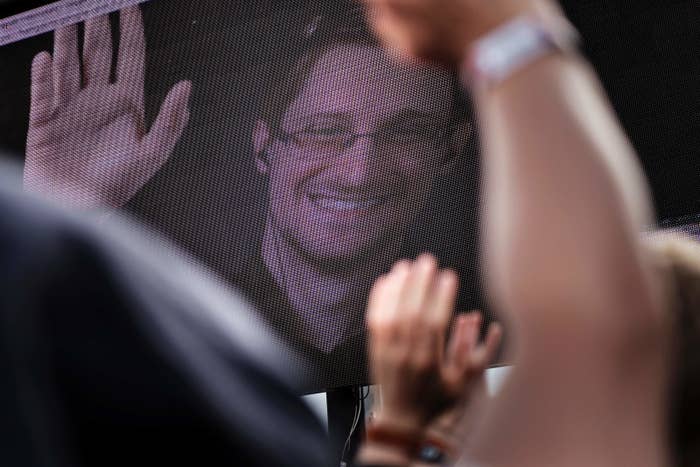
Edward Snowden’s public fight against a new Russian surveillance bill continued Wednesday, in a series of tweets calling the proposed legislation a “Big Brother law… an unworkable, unjustifiable violation of rights that should never be signed.”
The proposed "Yarovaya law," written by United Russia party member Irina Yarovaya in response to the bombing of a Russian passenger jet over Egypt in October 2015, would hand out prison sentences of seven years for writing in support of "extremism" on the Internet, criminalize failure to report "reliable" information about planned attacks, and require online providers to retain at least six months worth of users' communications, three years of "metadata," and to provide backdoors to decrypt this material.
Russia's new Big Brother law is an unworkable, unjustifiable violation of rights that should never be signed. https://t.co/HNsYmRaxR3
On Friday, the legislation passed the lower house of parliament in a 325-1 vote. It now needs to pass through the upper house of Parliament and be approved by Russian President Vladimir Putin.
Snowden has resided in Russia since leaving the United States in 2013, when he was charged with violating the Espionage Act for his leak of a trove of documents about the US’ surveillance program. The former National Security Agency contractor let loose a series of tweets this week expressing his concern that the law would impact Russia’s civil liberties, without improving their safety.
Sad: Russia's #BigBrother law creeps toward a signature despite objections from citizens, business, and regulators. https://t.co/FF3waomuR9
It's hard to imagine a clearer modern example of a bill that shouldn't be signed. #StopBigBrother https://t.co/jtRG0ydEhU
Mass surveillance doesn't work. This bill will take money and liberty from every Russian without improving safety. It should not be signed.
Speaking to the Interfax news agency on Monday, Snowden’s lawyer, Anatoly G. Kucherena, said the tweets showed that Snowden was “a man of principles” who “criticizes Russia, too.” While Snowden has enjoyed relative freedom in Russia, appearing often at conferences through teleconferencing and tweeting to his millions of followers, he has said that he does not plan to die in Russia and hopes to return to the United States.
While some tweeted their concern that Snowden could risk losing his residency in Russia over the tweets, investigative journalist and author of The Red Web, Andrei Soldatov, said he did not think the tweets endangered Snowden. Putin has established himself as Snowden’s “protector and defender” Soldatov told BuzzFeed News, and might be pushed to respond to the tweets given Snowden’s high-profile position.
“In the past, I have been critical of Snowden for not commenting on the situation in Russia… But in this case I think his voice counts. We need his voice to talk about what is going on here, what is, in fact, a very horrifying law,” said Soldatov.
The proposed legislation, said Soldatov, had united privacy activists and internet companies in Russia.
“It is evident that this law would be impossible to implement. It would be so costly, so expensive for companies. The goal is for the Kremlin to force companies to come to them, to ask for permits, deals, etc,” said Soldatov. “Companies who have been frightened, silenced against the Kremlin have now become vocal. Now they talk. Many companies based in Russia are now speaking up. Internet users and internet companies are united against this legislation. Now Snowden is too.”
